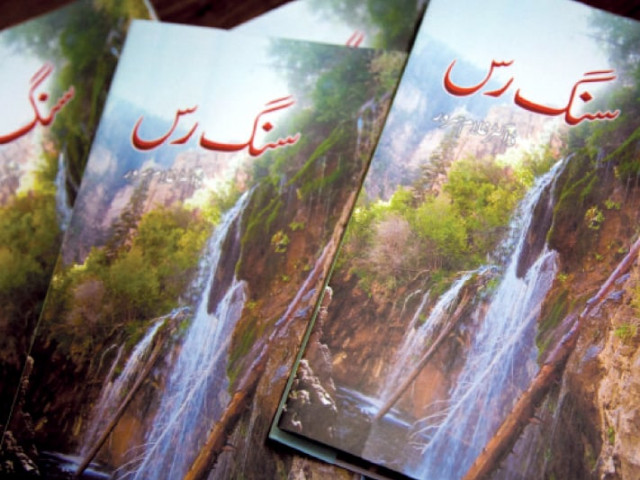Book launch: A life examined through poetry and prose
Geologist Ghulam Sarwar’s book garners praise among literati.

A combination of poetry and prose, Ghulam Sarwar’s latest book explores facets of the human existence that emerge with changing times.
Titled “Sang Ras” (the essence of the mountains), the book was launched at National Language Authority (NLA) to a packed audience on Friday, despite the author being stranded in Quetta and the security threat surrounding Muharram 8.
Renowned author Fateh Muhammad Malik, all praise for the book, noted that as writers mature, they are more mindful of articulating their experience into self-expression.
“Maybe that’s because we know the clock is ticking,” he said with a grin.
Harris Khalique, writer and poet, attributed Sarwar’s literary ingenuity partly to his profession as a geologist. He commended how the author has presented and analysed the Muslim world, without prejudice but with a discerning and wide lens.
“Sarwar went on Hajj last year. Though religious pilgrimage should be a spiritual voyage and ablution, he has seen the capitalistic and materialistic aspect attached to Hajj which he understands and shows aptly,” said Khalique, while reading an excerpt from the author’s friends, Muhammad Ali Najfi and Muhammad Hussain, whom the book is dedicated to.
Muhammad Ali Farshi, poet, coined the term “back-benchers of literature”, referring to the poets who don’t go down in the canon as pioneers. “Not everyone can be Ghalib, but the smaller trees are necessary to make the jungle,” he said.
Farshi along with Javed lamented the loss of a generation and culture that was literary by nature such as that found from 1955 to 1965, a generation that spoke in lyrical tongues and emulated the romance of ghazal. They deemed Sarwar as being one of the few last individuals that still embody that quality, which is teetering on extinction.
Ahmed Javed, academic, also noted that the book is in no way the nostalgia of a poor country as may seem on first glance. On deeper inspection, he said, the book is actually a love letter to the scent of Pakistani soil. As Sarwar has lived and worked abroad, his grasp on portraying Pakistani culture as an expatriate was also commended.
As a concluding remark, Malik said, “I haven’t gotten the chance to read the book yet, but after hearing the feedback of my peers, I can’t wait to have a dialogue with this work tonight.”
Published in The Express Tribune, November 24th, 2012.



















COMMENTS
Comments are moderated and generally will be posted if they are on-topic and not abusive.
For more information, please see our Comments FAQ